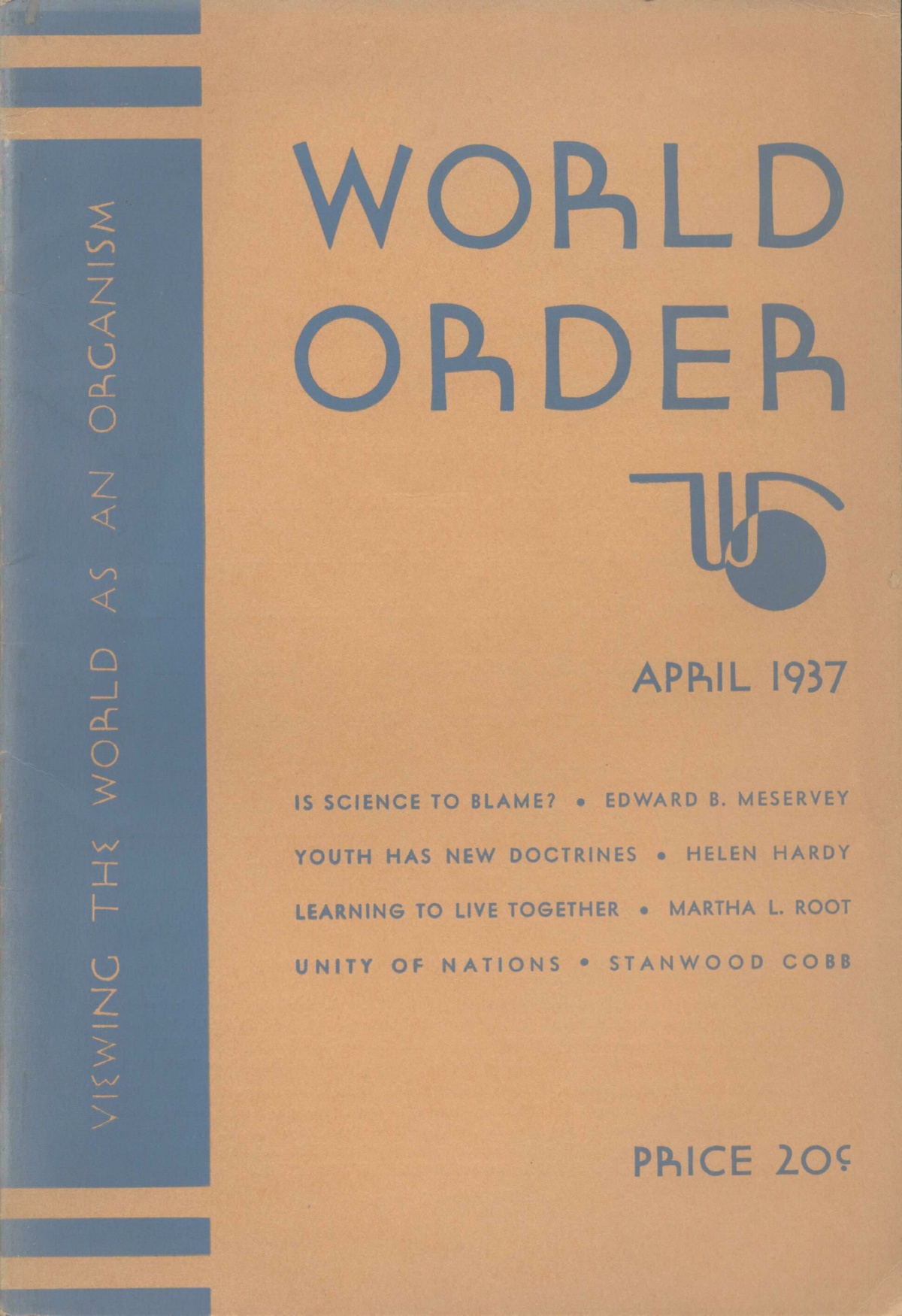The Bahá’í World Order represents an ambitious and transformative vision, advocating for universal peace, justice, and collaboration among all humankind. Rooted in the teachings of Bahá’u’lláh, the founder of the Bahá’í Faith, this framework posits that humanity is on the verge of a radical transition—a shift towards a global society that embodies the core principles of unity, equality, and service. This article will delve into the various teachings that underpin the Bahá’í World Order, exploring the implications for spiritual development, social governance, and community-building initiatives.
To fully comprehend the Bahá’í World Order, it is paramount to first understand its foundational principles. At the core lies the concept of unity in diversity, which recognizes the inherent worth of every individual while simultaneously emphasizing the interconnectedness of all people. This notion transcends cultural, racial, and religious boundaries, advocating for a society wherein mutual respect and understanding reign supreme. In this environment, the Bahá’í Faith encourages individuals to cultivate a personal sense of spirituality that reflects this unity, prompting believers to contemplate and apply these ideals in their daily lives.
An essential characteristic of the Bahá’í World Order is its commitment to the elimination of prejudice in all forms. This doctrine extends beyond mere tolerance; it champions the idea that true peace can only be achieved when individuals actively engage in dismantling systemic injustices. The teachings urge followers to confront and rectify societal inequities, manifesting a commitment to building inclusive communities. This ethos reinforces the belief that every human being possesses the innate potential for greatness, which can flourish given the right conditions and opportunities.
Furthermore, the Bahá’í World Order places significant emphasis on the equality of men and women, positing that the advancement of society hinges on the full participation of all genders. This principle advocates for equal access to education, leadership opportunities, and social responsibilities. Recognizing gender disparity as a critical barrier to progress, the Bahá’í Faith calls for concerted efforts to empower women and eliminate discriminatory practices. Thus, the teachings contribute to a paradigm where both men and women work collaboratively as equal partners, enhancing the social fabric of communities.
In terms of governance, the Bahá’í World Order presents a unique model of administration grounded in spiritual principles. This administrative system is characterized by a consultative process, ensuring that decisions are made collectively and with a focus on the common good. The Bahá’í approach to governance emphasizes the importance of ethical leadership, advocating for individuals who exhibit integrity, reliability, and devotion to service. This vision seeks to cultivate leaders who prioritize the welfare of their community above personal ambition, fostering trust and accountability in public affairs.
The concept of a global federation is an integral aspect of the Bahá’í World Order. Emphasizing the importance of international cooperation, Bahá’u’lláh envisioned a world where nations unite to address global challenges collaboratively. This federation would operate on principles of justice and equity, promoting dialogue between nations and offering avenues for conflict resolution. Such an organization would serve as a platform for the collective pursuit of peace, understanding, and administrative efficiency, ultimately transforming international relations into a cooperative endeavor rather than a competitive struggle.
A central tenet of the Bahá’í World Order is the fostering of education and knowledge dissemination. The teachings emphasize the transformative power of education as both a means to individual upliftment and community advancement. The Bahá’í community emphasizes the universal right to education, advocating for accessible and quality education for all, regardless of socio-economic status. This focus on educational equity cultivates a well-informed citizenry, equipped to tackle societal problems through enlightened action and innovative thinking.
Alongside education, the Bahá’í Faith advocates for the establishment of a culture of service. Followers are encouraged to dedicate their efforts to the uplifting of humanity, fostering an ethos where altruism and selflessness become normative behaviors within communities. This commitment to service is not merely a personal virtue, but a communal responsibility, where every individual contributes to the welfare of others. The Bahá’í teachings underscore service as a pathway to spiritual development, combining personal growth with tangible community improvement.
The aspiration of the Bahá’í World Order extends beyond spiritual and social dimensions; it envisions an integration of science and religion as complementary avenues for understanding truth. This synthesis recognizes the valuable contributions of both scientific inquiry and spiritual exploration as essential for the holistic development of humanity. By championing this harmonious relationship, the Bahá’í teachings assert the importance of fostering a culture of inquiry, creativity, and innovation sensitive to ethical and spiritual considerations.
Finally, the Bahá’í World Order culminates in the vision of a peaceful and prosperous global society, where the principles of the Faith are translated into tangible actions. This transformative vision demands an unwavering commitment to the ideals of justice, cooperation, and love—principles that can guide humanity through the challenges of modernity. The teachings implore individuals and communities to embody these virtues, ensuring that the movement towards a unified humanity is not merely aspirational, but an achievable reality.
In conclusion, the Bahá’í World Order offers a profound narrative of aspiration and commitment. Through the concepts of unity, equality, ethical governance, education, service, and collaboration, it proposes a comprehensive framework for societal evolution. As humanity evolves in an increasingly interconnected world, the teachings of the Bahá’í Faith provide a guiding light towards a future wherein peace and justice are not only envisioned but realized.
